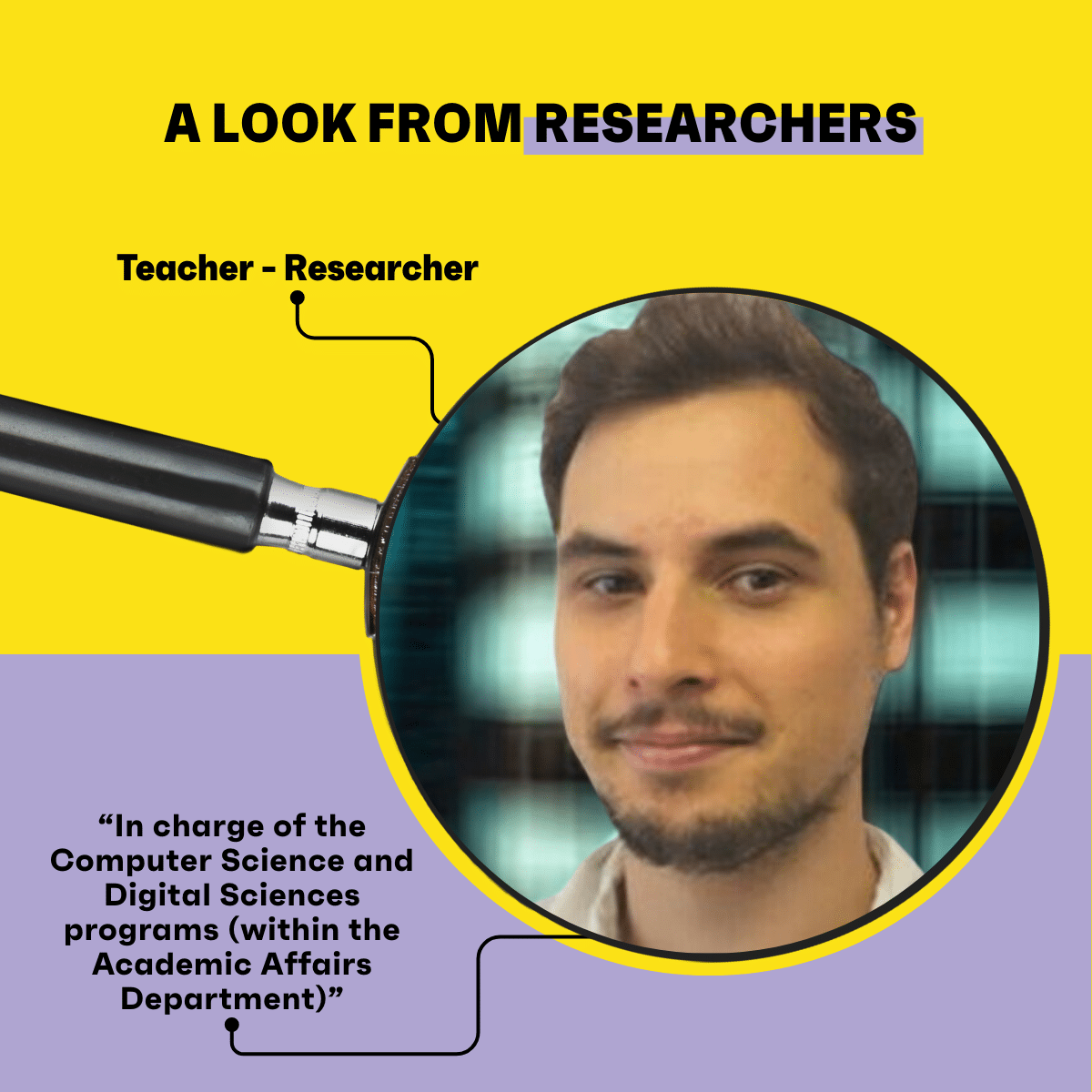A Look from Researchers – Interview with Mickaël Delamare

On this page :
- If you had to summarize your research theme in three words, which would you choose, and why ?
- What major challenges or questions are you facing in your current research ?
- How can your work improve our daily lives or the way we interact with technology ?
3 questions to Mickaël Delamare
Teacher–Researcher at cesi
In charge of Computer Science and Digital Sciences programs (Academic Affairs)
Since 2021, Mickaël has been coordinating the Computer Science and Digital Sciences programs within CESI’s Academic Affairs. Passionate about active teaching methods and critical research on AI, he ensures the coherence of curricula while integrating innovative approaches based on collaboration between faculty, researchers, and management teams.
He also leads the strategic CAIRE project (Citizen-Oriented Artificial Intelligence for a Responsible Education), illustrating the power of collective momentum across departments to envision the responsible education of tomorrow. This advocate of reflexivity joined CESI after completing his PhD at ESIGELEC, drawn by the school’s values and its commitment to human-centered pedagogy.
If you had to summarize your research theme in three words, which would you choose, and why ?
Capabilities – Mediation – Reflexivity
Capabilities: I adopt a critical approach to AI in education: I aim to design learning environments that expand learners’ real freedoms, especially their ability to act in hybrid contexts (education/industry). I build on the educational reading of capabilities proposed by Solveig Fernagu, which roots them in contextualized mediations.
Mediation: I develop AI agents (RAG type) that are not meant to replace humans but to serve as technical, cognitive, and pedagogical mediators. Here, AI is conceived as a facilitating third party, supporting access to resources, understanding, reformulation, and argumentation.
Reflexivity: The goal is not only to transmit knowledge but to foster a reflective stance in users, helping them think, compare, doubt, and build their own evaluation criteria. A well-designed AI can encourage critical analysis, self-explanation, and the adjustment of one’s own choices.
What major challenges or questions are you facing in your current research ?
Three key challenges shape my work:
- How can we create a fertile interface between education sciences and computer science ?
It is not simply a matter of applying technical models to teaching situations. My approach is to make the two disciplines genuinely converse: education sciences to frame purposes and conditions of use, AI to propose architectures (such as RAG) capable of supporting those aims, understanding the materials better to design and sustain them better.
- How can we translate the capability theory into the design of digital environments ?
The goal is to create non-prescriptive AIs, sensitive to context and able to support the freedoms to learn, to understand, and to choose. This requires ethical design centered on the needs and constraints of users, whether learners, trainers, or professionals.
- How can we link AI and reflective pedagogy without imposing standardized learning paths ?
AI risks locking users into profiles and prescribed trajectories. I strive instead to develop adaptive yet open agents, able to evolve with the user and encourage critical thinking rather than automatic behavior.
How can your work improve our daily lives or the way we interact with technology ?
My objective is to design reflective conversational agents that transform our relationship with educational and professional technologies by making them more human, open, and critical.
Concretely, this means:
- For a student: an intelligent assistant that does not just give answers but helps to understand, to question, to rephrase, and to explore other paths, a reflective companion rather than a solution engine.
- For a professional: a decision-support tool that incorporates field constraints, language, and context, helping them learn in action while stimulating critical analysis of their practices.
- For a trainer: a partner that does not replace but enhances mediating abilities, helping to adapt resources, individualize learning paths, and support more active and critical learning forms.
By embedding reflexivity into AI systems, my work aims to return cognitive and decision-making control to humans, building a technological future that serves emancipation, not disempowerment.
Mickaël’s advice to young researchers:
A responsible AI does not tell you what to think, it gives you the means to think for yourself. It opens up possibilities, it does not impose answers.
Mickaël Delamare